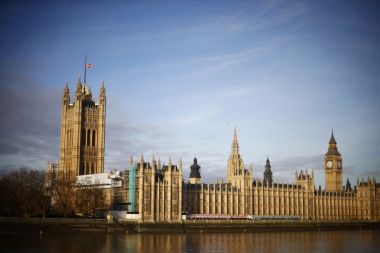Evangelical voting intentions: poll shows a quarter are still undecided, but Tories on the rise

Evangelicals are likely to favour the Conservative Party when they vote in this week's general election, the latest survey finds.
A poll by the Evangelical Alliance has found that nearly all UK evangelicals will vote in the general election. Nearly nine out of 10 said they are certain to vote. Fewer than one in 10 are unlikely or certain not to.
The Conservative Party has picked up three points among evangelicals since September 2014 to claim 31 per cent of evangelical votes and take the lead while Labour fell to under a third at 29 per cent.
The Liberal Democrats recovered to reclaim third spot on 12 per cent, and the Green Party grew its support to nine per cent. Backing for UKIP however fell, from 12 to just 10 per cent over the same period.
In 2010 the Evangelical Alliance, an unbrella body representing two million evangelical Christians, reported that 40 per cent voted Conservative, 29 per cent Liberal Democrats, 22 per cent Labour, two per cent UKIP and one per cent Green.
With 23 per cent of evangelicals still undecided, there as many as half a million votes still to play for in the final days of campaigning. Half of these voters are considering voting for Labour, slightly fewer for the Liberal Democrats and 44 per cent for the Conservatives. Among the minor parties the Greens are an option for 26 per cent while just 16 per cent are thinking about voting for UKIP.
Among evangelicals planning to vote for UKIP in May's election, 65 per cent had previously backed the Conservatives. The Green Party has garnered support from across the political spectrum, attracting those who had previously supported the Liberal Democrats and Labour as well as – perhaps surprisingly – some former Conservatives.
Dr Dave Landrum, director of advocacy at the Evangelical Alliance, said: "With only days left before the country goes to the polls many evangelicals are still on the fence. Given that our research shows they intend to vote in great numbers, this poll signals an opportunity for the parties. Let's hope they take this opportunity by addressing the concerns of evangelicals in the final days of campaigning, including poverty and religious freedom."
The Faith in Politics? report published by the Evangelical Alliance in February 2015 showed that evangelicals consider poverty and inequality to be the most important issue facing the country. It also found the issues most likely to affect their vote are policies protecting religious freedom, helping the poorest, eliminating human trafficking, opposing same-sex marriage and backing a pro-life stance on euthanasia.
Analysis of this latest survey, conducted in mid-April, shows that the Conservatives have lost nearly half of their evangelical supporters from 2010, while three out of 10 who voted for the Liberal Democrats remain loyal. Labour have held on to the highest proportion of backers from the last general election, yet even here four out of 10 have decided to vote for another party or are still to decide.
More than 1,140 people were surveyed of whom 932 self-described as evangelical Christians. The results presented apply to evangelical respondents only.











